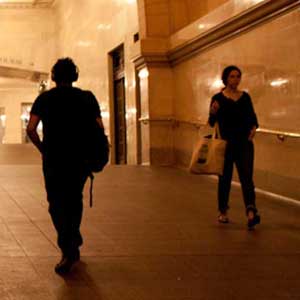At the end of this week, peers in the House of Lords will debate (and potentially vote on) Lord Falconer's Assisted Dying Bill, in what could prove to be a key step in the legalisation of doctor-assisted suicide in England and Wales. If enacted, the bill would allow terminally ill adults who are mentally competent to be prescribed life-ending medicine by a doctor which they can then use to end their lives at a time of their own choosing. The bill (which is explained in more detail on the Dignity in Dying website) has similarities to the US state of Oregon's Death with Dignity Act, which has been in place and used without any recorded cases of abuse for the last 17 years.
The Lords debate, in which a record 110 peers have already signed up to speak, comes at a moment when the mood around assisted dying reform appears to be shifting. While opinion polls have shown that almost three-quarters of the public favour a change in the law, previous attempts to pass legislation have met with opposition from legislators and influential campaigners, in particular religious leaders. In 2006 a bill introduced by Lord Joffe was rejected in the House of Lords by 148 votes to 100.
There is still significant opposition, but the interventions of two influential Anglican figures this past weekend indicate that religious opinion, which has always played a key role in arguing against assisted dying, is not entirely united. On Saturday, Lord Carey, the former Archbishop of Canterbury, revealed that he has changed his opinion on assisted dying, having previously been a leading voice in opposing a change in the law. In a letter published in the Daily Mail, Carey explained how the experience of witnessing the suffering of terminally-ill parishioners has led him to question the reasoning behind his opposition to assisted dying:
Until recently, I would have fiercely opposed Lord Falconer’s Bill. My background in the Christian Church could hardly allow me to do otherwise.
I would have used the time-honoured argument that we should be devoting ourselves to care, not killing. I would have paraded all the usual concerns about the risks of ‘slippery slopes’ and ‘state-sponsored euthanasia’.
But those arguments that persuaded me in the past seem to lack power and authority now when confronted with the experiences of those suffering a painful death.
In addition to Carey, the weekend also saw a striking intervention on the subject from Archbishop Desmond Tutu. Writing in the Observer, Tutu drew on his own experiences, including the sight of his friend Nelson Mandela suffering in the years before his death, to argue that people should be allowed to choose to die with dignity:
I have been fortunate to spend my life working for dignity for the living. Now I wish to apply my mind to the issue of dignity for the dying.
I revere the sanctity of life – but not at any cost. I confirm I don't want my life prolonged. I can see I would probably incline towards the quality of life argument, whereas others will be more comfortable with palliative care. Yes, I think a lot of people would be upset if I said I wanted assisted dying. I would say I wouldn't mind actually.
Of course, Tutu does not have a direct connection to British politics, but his voice is nonetheless an influential one, and his intervention highlights the diversity of religious opinion (at least among Anglicans) on assisted dying. While Lord Carey has come out in favour of Lord Falconer's Bill, the current Anglican leadership remains opposed, with the current Archbishop of Canterbury Justin Welby describing it as "mistaken and dangerous". However, while it is opposing the bill, the Church of England is not sidestepping discussion of the issue – it has called for the bill to be withdrawn, but it is proposing that a Royal Commission should be established to investigate assisted dying and analyse the case for changing the law.
At present, though, it seems likely that Friday's debate will go ahead. With so many peers signed up to contribute, and with the issue high on the current news agenda, it has the potential to be a landmark moment in the campaign for reform.

